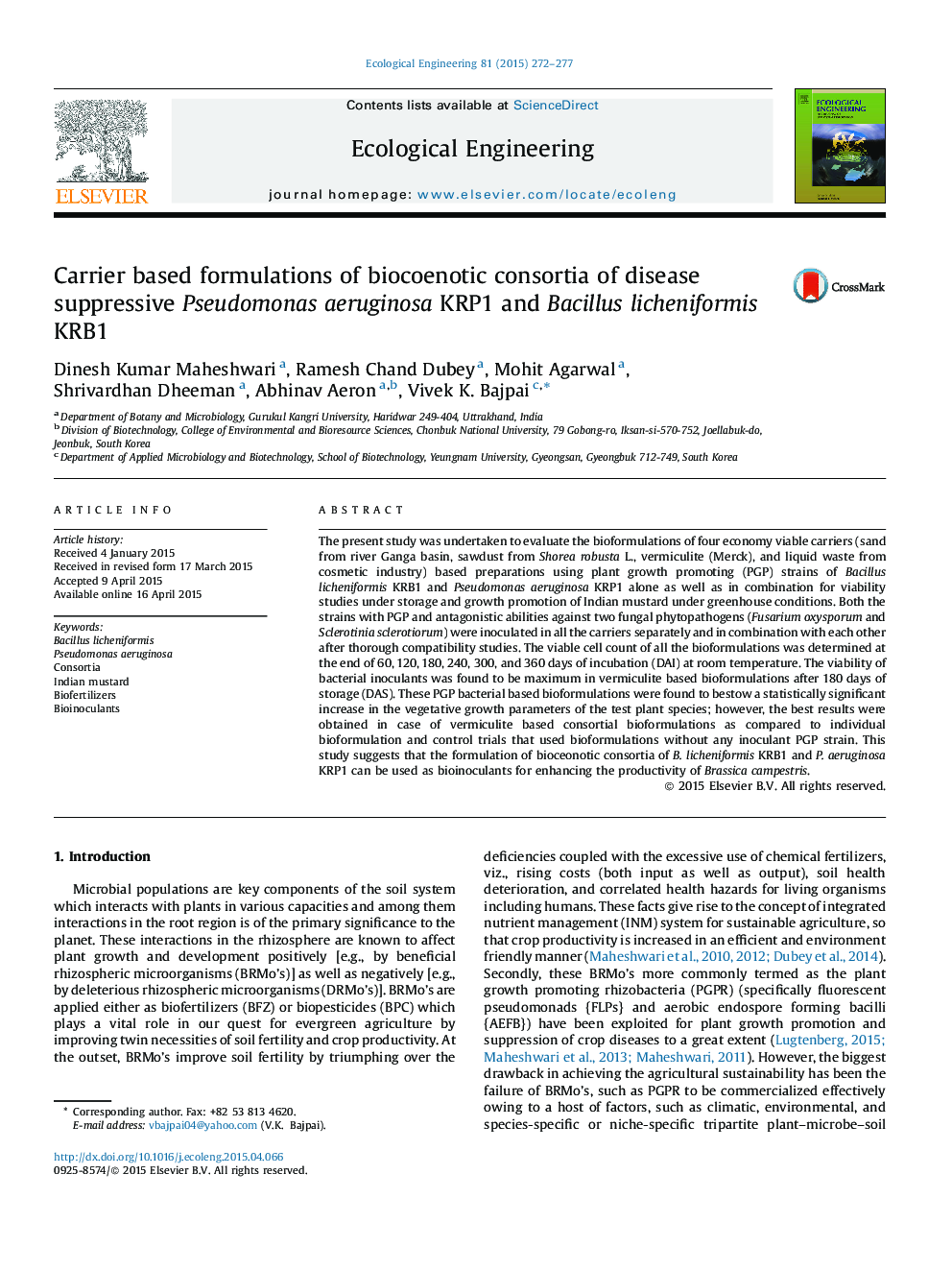| Article ID | Journal | Published Year | Pages | File Type |
|---|---|---|---|---|
| 4389082 | Ecological Engineering | 2015 | 6 Pages |
Abstract
The present study was undertaken to evaluate the bioformulations of four economy viable carriers (sand from river Ganga basin, sawdust from Shorea robusta L., vermiculite (Merck), and liquid waste from cosmetic industry) based preparations using plant growth promoting (PGP) strains of Bacillus licheniformis KRB1 and Pseudomonas aeruginosa KRP1 alone as well as in combination for viability studies under storage and growth promotion of Indian mustard under greenhouse conditions. Both the strains with PGP and antagonistic abilities against two fungal phytopathogens (Fusarium oxysporum and Sclerotinia sclerotiorum) were inoculated in all the carriers separately and in combination with each other after thorough compatibility studies. The viable cell count of all the bioformulations was determined at the end of 60, 120, 180, 240, 300, and 360 days of incubation (DAI) at room temperature. The viability of bacterial inoculants was found to be maximum in vermiculite based bioformulations after 180 days of storage (DAS). These PGP bacterial based bioformulations were found to bestow a statistically significant increase in the vegetative growth parameters of the test plant species; however, the best results were obtained in case of vermiculite based consortial bioformulations as compared to individual bioformulation and control trials that used bioformulations without any inoculant PGP strain. This study suggests that the formulation of bioceonotic consortia of B. licheniformis KRB1 and P. aeruginosa KRP1 can be used as bioinoculants for enhancing the productivity of Brassica campestris.
Keywords
Related Topics
Life Sciences
Agricultural and Biological Sciences
Ecology, Evolution, Behavior and Systematics
Authors
Dinesh Kumar Maheshwari, Ramesh Chand Dubey, Mohit Agarwal, Shrivardhan Dheeman, Abhinav Aeron, Vivek K. Bajpai,
